 Just over three years ago, when few had heard of him, Dr No wrote a post called The Collapse of the Probability Function. At its heart lies the troublesome paradox that, while we might know how a group of patients might fare, we have no way of knowing how individual patients will fare. We might know that of a hundred patients, five will die in the next ten years from a heart attack. What we don’t know is who of the hundred will be the five; and the flip side of that is, when as doctors we choose to intervene, as increasingly we do, there are ninety five souls now tangled in our medical web, with all that that entails, be it tests, treatments and general apprehension, who were never going to have a heart attack anyway, let alone die from one in the next ten years. That’s a whole lot of medical intervention without any benefit whatsoever – but what the heck – overall, we might save a handful of lives – or so the hopeful reasoning goes.
Just over three years ago, when few had heard of him, Dr No wrote a post called The Collapse of the Probability Function. At its heart lies the troublesome paradox that, while we might know how a group of patients might fare, we have no way of knowing how individual patients will fare. We might know that of a hundred patients, five will die in the next ten years from a heart attack. What we don’t know is who of the hundred will be the five; and the flip side of that is, when as doctors we choose to intervene, as increasingly we do, there are ninety five souls now tangled in our medical web, with all that that entails, be it tests, treatments and general apprehension, who were never going to have a heart attack anyway, let alone die from one in the next ten years. That’s a whole lot of medical intervention without any benefit whatsoever – but what the heck – overall, we might save a handful of lives – or so the hopeful reasoning goes.
Category: Bad Stats
Calling Time on Minimum Pricing
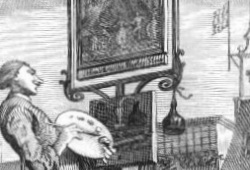 Once again, the brown trout that wont flush away has bobbed up for air. Yesterday, David Cameron put alcohol minimum pricing back on the agenda. Across the land, responsible doctors cried Cheers! The Chair of the Royal College of General Practitioners, Dr Clare Gerada, who counts addiction – in others, one hastens to add – among her special interests, spoke for many when she tweeted the price, availability and advertising is all mantra. This mantra is underpinned by left shift, which sounds cool, being the sort of thing cool astronomers like Brian ‘Wow, Magnificent’ Cox might say, but it suffers from a defect WM would never allow: it is chasing the wrong hair, or rather tail, of the dog. In practice, minimum pricing will be spectacularly ineffective at reducing high alcohol use, and even worse, it will almost certainly result in blowback, by which Dr No refers not to the visit to the loo on the morning after the night before, but unintended harm arising from well-intentioned practice.
Once again, the brown trout that wont flush away has bobbed up for air. Yesterday, David Cameron put alcohol minimum pricing back on the agenda. Across the land, responsible doctors cried Cheers! The Chair of the Royal College of General Practitioners, Dr Clare Gerada, who counts addiction – in others, one hastens to add – among her special interests, spoke for many when she tweeted the price, availability and advertising is all mantra. This mantra is underpinned by left shift, which sounds cool, being the sort of thing cool astronomers like Brian ‘Wow, Magnificent’ Cox might say, but it suffers from a defect WM would never allow: it is chasing the wrong hair, or rather tail, of the dog. In practice, minimum pricing will be spectacularly ineffective at reducing high alcohol use, and even worse, it will almost certainly result in blowback, by which Dr No refers not to the visit to the loo on the morning after the night before, but unintended harm arising from well-intentioned practice.
S.T.P.M.
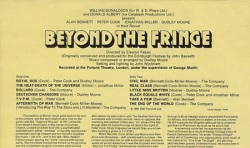 Dear Reader–
Dear Reader–
I have recently been travelling around the country, on your behalf and at your expense, visiting some of the chaps with whom I hope to be shaping your NHS. I went first to Wales, to Llwelliwindywillow, and there I spoke with the Welsh health minister, Ms Llwesley Griffiyd, and we exchanged many frank words in our respective languages, so precious little came of that in the way of understanding. I did however remonstrate with her that offering free PIP implants was reckless, and I am told she remonstrated with me that not offering free PIP implants was reckless.
Nature Cooks the Books
 Even at the best of times, epidemiology can seem as dry as old biscuits, and when it starts counting stiffs – as it so often does – it can smell not just dry and old, but musty too. But it is an important ology, and when done well, which is surprisingly difficult, it can tell us useful things.
Even at the best of times, epidemiology can seem as dry as old biscuits, and when it starts counting stiffs – as it so often does – it can smell not just dry and old, but musty too. But it is an important ology, and when done well, which is surprisingly difficult, it can tell us useful things.
This morning on Radio 4’s Today programme, we had Professor Bruce Keogh, a Department of Health chief pongo, putting the icing on an epidemiological cake he had himself helped bake. Having started soundly enough, he suddenly veered off-piste, gathered speed, and delivered a shopping list of deliverables that bore no relation to the study he and Wingnut had only a moment ago been discussing. “For me,” Prof Cough said, “the big prize …is about our NHS catching up with other service industries and offering a routine six or seven day week…where people can have routine operations over the weekend…at their convenience…access to expert advice…that’ll put the compassion back into the NHS”. Compassion? It sounded more like commerce to Dr No. It was, of course, a government inspired vision for the 24/7 hospital, where every day is Wednesday, every patient a consumer, and all the clocks strike thirteen.
NHS – The Apprentice
 Opening Titles: Camera swoops across London teaching hospital rooftops – St Thomas’, Guy’s Tower, the cruciform Royal Free. The second half of Mars from Holst’s The Planets throbs loudly. Cut to UCL’s Accident & Emergency entrance at night. A large NHS blue Roller, Registration Mark NHS 1, arrives, with what appears to be a Belisha Beacon in the back seat. The door opens, and Lord Sugar steps out, looking very grim. He points at an Ambulance Paramedic.
Opening Titles: Camera swoops across London teaching hospital rooftops – St Thomas’, Guy’s Tower, the cruciform Royal Free. The second half of Mars from Holst’s The Planets throbs loudly. Cut to UCL’s Accident & Emergency entrance at night. A large NHS blue Roller, Registration Mark NHS 1, arrives, with what appears to be a Belisha Beacon in the back seat. The door opens, and Lord Sugar steps out, looking very grim. He points at an Ambulance Paramedic.
Sugar: You’re Fired.
Paramedic: Thank you, Lord Sugar. (walks off, trailing a defibrillator trolley on wheels, towards a waiting taxi. The Belisha Beacon gets noticeably oranger).
Voiceover: The NHS. A decayed, inefficient state monopoly that consumes money as a waterfall does water. Waste is everywhere, and indifference is rife. Even nice Gerry Robinson couldn’t fix the NHS. Lord Sugar has had enough.
Sugar (to camera): It’s a shambles, a bloody disgrace.
Today Interviews Bennett
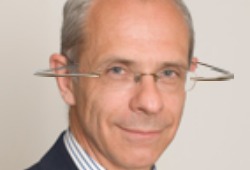 Once again, the BBC proves how far ahead it is of the competition…not to mention Al Jazeera…
Once again, the BBC proves how far ahead it is of the competition…not to mention Al Jazeera…
Scene: The Radio Four Today programme studio, on air. HUMPH sits at a desk, chewing a carrot. JIMBO sits on a bean-bag, reading an upside down copy of the King James bible. He is muttering to himself.
JIMBO: You say Naughty, I say Kno’ch’oty. What’s in a name? Quite a lot, I suppose, if you are that b*rstard H*nt. F*cking ar…
PRODUCER (within): Shut it, Jimbo.
HUMPH (on air): Earlier today, Jimbo talked to Dr David Bennett, the new Chair of Monitor, the NHS Regulator.
Captain Mainwaring’s Commissioning
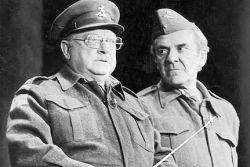 The government continues to push its quaint vision of local GPs doing local healthcare commissioning. Many who know rather more about the National Health Service than the government do have pointed out this is a non-starter. But let us imagine for a moment what might happen if all GPs did take on commissioning. It might go something like this:
The government continues to push its quaint vision of local GPs doing local healthcare commissioning. Many who know rather more about the National Health Service than the government do have pointed out this is a non-starter. But let us imagine for a moment what might happen if all GPs did take on commissioning. It might go something like this:
Scene: Walmington-on-Sea Church Hall. Platoon drawn up, Mainwaring and Wilson face them.
MAINWARING: Right, Men. I’ve a very important announcement to make. (inflates chest) We’ve orders from the ministry to fix the NHS. Its going to be the next big thing. (inflates chest further, taps swagger stick on flipchart for emphasis) Its called Home Guard Commissioning. We’re going to show these Johnny-come-lately American chaps how it’s done.
NICE but dim
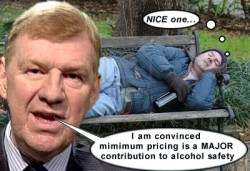 Warning: post contains economics. Some readers may find themselves bored silly. In such cases, Dr No recommends taking a tea-break and returning to the post only when the sense of boredom has completely dissipated.
Warning: post contains economics. Some readers may find themselves bored silly. In such cases, Dr No recommends taking a tea-break and returning to the post only when the sense of boredom has completely dissipated.
Economists are keen on a concept known as elasticity. There appear, from Dr No’s primitive researches on the matter, to be a disconcerting number of elasticities in economics. Naturally enough, economists dress all these elasticities up in hieroglyphics, but inspected through the lens of common-sense, economics stands revealed as a study of rubber bands, albeit rubber bands that drive economic activity, but rubber bands nonetheless.
NICE trip on the wagon
 Another voice has been added to the hue and cry for a minimum price for alcohol. Within days of Rubber Duck stepping down from his CMO post, the better to quack his favourite message, NICE, the National Institute for Health, Clinical and Anything Else Anybody Will Pay Us For Excellence, has jumped on the wagon. Voluminous guidance, published earlier this week, recommends a raft of measures that, NICE says, will ‘significantly decrease alcohol consumption’ if implemented. A top tip for government is to make alcohol ‘less affordable by introducing a minimum price per unit’. There was much talk of growing tides of unassailable evidence. Dr No began to fear he was now King Canute, alone on the beach, his once half full glass now half empty. Until, that is, he heard an interview on the Today programme. Suddenly the glass was half full again.
Another voice has been added to the hue and cry for a minimum price for alcohol. Within days of Rubber Duck stepping down from his CMO post, the better to quack his favourite message, NICE, the National Institute for Health, Clinical and Anything Else Anybody Will Pay Us For Excellence, has jumped on the wagon. Voluminous guidance, published earlier this week, recommends a raft of measures that, NICE says, will ‘significantly decrease alcohol consumption’ if implemented. A top tip for government is to make alcohol ‘less affordable by introducing a minimum price per unit’. There was much talk of growing tides of unassailable evidence. Dr No began to fear he was now King Canute, alone on the beach, his once half full glass now half empty. Until, that is, he heard an interview on the Today programme. Suddenly the glass was half full again.
The Mystery of the Toothless Bearded Hag
 Flogging toothpaste may be a dull business, but for once eyes must surely have shone brighter than teeth in the marketing department at Colgate this week. A gift of a study, published in the BMJ last Thursday, linked poor toothbrushing to heart disease. The media predictably flipped the message, with headlines certain to fix a smile on even the most jaded of Colgate lips. Auntie exhorted us to ‘Brush teeth to halt heart disease’, while the Daily Mail directed ‘Clean your teeth twice a day to keep a heart attack at bay’. The ping was at last back in the Colgate ring of confidence, for who needs advertising, when sparkling headlines (351 of them, according to google) say it all?
Flogging toothpaste may be a dull business, but for once eyes must surely have shone brighter than teeth in the marketing department at Colgate this week. A gift of a study, published in the BMJ last Thursday, linked poor toothbrushing to heart disease. The media predictably flipped the message, with headlines certain to fix a smile on even the most jaded of Colgate lips. Auntie exhorted us to ‘Brush teeth to halt heart disease’, while the Daily Mail directed ‘Clean your teeth twice a day to keep a heart attack at bay’. The ping was at last back in the Colgate ring of confidence, for who needs advertising, when sparkling headlines (351 of them, according to google) say it all?
